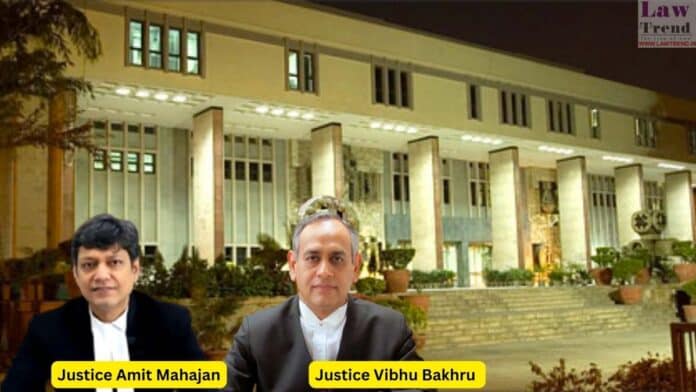The Delhi High Court has set aside a communication which had cancelled the candidature of a national level woman shooter and recommendation for her appointment to the Delhi Judicial Service (DJS).
Paving the way for the appointment of Disha Langan as a judicial officer, a bench of justices Vibhu Bakhru and Amit Mahajan said the administrative side of the high court cannot adopt a pick and choose policy where it proceeds against one candidate in similar facts and refrains from doing so in the case of another.
The bench allowed the petition of Langan, a member of the National Rifle Association of India, challenging the decision of the high court establishment cancelling revoking her candidature and recommendation for appointment to the DJS.
The petitioner’s candidature for appointment to the DJS was cancelled on the ground that she had concealed the fact that a criminal prosecution/ criminal complaint was pending against her, in her application form for the DJS Examination – 2022.
The court noted that the petitioner’s candidature was not revoked on account of criminal proceedings instituted against her, which now stand quashed, but for the reason that she had not disclosed in her application form that she was being prosecuted.
The question asked in the application form was, “Have you ever been arrested, prosecuted, kept under detention or bound / convicted by a court of Law for any offence or debarred / disqualified by any Public Service Commission from appearing at its examination/selection or debarred educational authority/institution?”
To this, Langan had responded in negative.
The next question in the form was, “Is any case pending against you in any court of law, university or any other equatorial authority/ institution at the time of filing up this attestation form.”
To this, she responded in affirmative as a criminal complaint lodged by Directorate of Revenue Intelligence was pending against her at that time.
For responded the first question in negative, the petitioner gave the defence that the information required was not free from ambiguity. It was contended that the query was capable of being interpreted to mean whether the candidate had been arrested, prosecuted, and kept under detention or bound/convicted by a court of law.
She contended that the punctuation marks (commas) between the words arrest, prosecuted, and kept under detention were capable of being construed conjunctively.
The bench said indisputably, if there is any ambiguity in the query, the benefit of doubt must be extended to the petitioner.
The bench said the contention that the petitioner had understood the correct answer to the query to be in the affirmative, only if she was arrested and detained, cannot be rejected.
“There is yet another reason to accept that the petitioner had responded in the negative to the query raised in the application form on account of misunderstanding the same to mean, whether, she had been arrested and prosecuted and kept under detention by a court of law for any offence. This is because in the attestation form filled by the petitioner, she clearly disclosed the criminal case pending against her as well as the petition preferred by her for quashing the said case,” it said.
The petitioner submitted that another candidate had a criminal case pending against him but had responded in the negative to the query in the application form and had been selected for appointment to Delhi Higher Judicial Service pursuant to Delhi Higher Judicial Service Examination – 2022.
She said she was similarly placed as the other candidate and while no action was taken by the high court’s administrative side against the other candidate, the petitioner’s candidature was cancelled.
The bench said, “There is merit in the petitioner’s contention that DHC cannot adopt a pick and choose policy whereby it proceeds against one candidate in similar facts while refraining from doing so in the case of another. However, in view of our conclusion that the query itself is capable of more than one interpretation, it is not necessary to examine whether the petitioner can derive any benefit from DHC not proceeding against ME (another candidate).”




